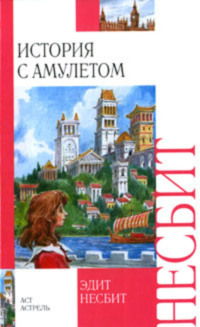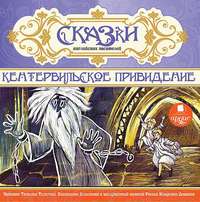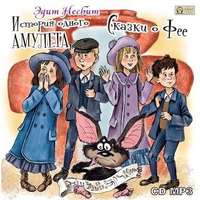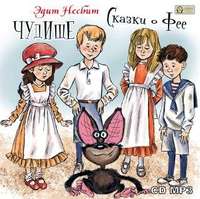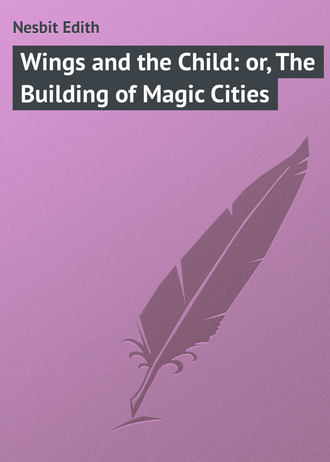
Wings and the Child: or, The Building of Magic Cities
It would seem that the humiliations, the mortifications endured in childhood leave an ineffaceable brand on the spirit. How then can we not remember, and, remembering, refrain from hurting other children as we were hurt?
The spirit of the child is sensitive to the slightest change in the atmosphere about him. You can convey disapproval quite easily – and approval also. But while most parents and guardians are constantly alive to the necessity for expressing disapproval and inflicting punishment, the other side of the medal seems to be hidden from them.
The most prevalent idea of training children is the idea of prohibition and punishment. "You are not to do it! You will? Then take that!" the blow or punishment following, expresses simply and exactly the whole theory of moral education held by the mass of modern mothers. The vast mistake, both in the education of children and government of nations, is the heavy stress laid on the negative virtues. Also the fact that punishment follows on the failure not to do certain things – whereas no commensurate reward is offered even for success in not doing, let alone for success in active and honourable well-doing. The reward of negative virtue is negative also, and consists simply in non-punishment. The rewards of active virtue are, in the world of men, money and praise. But there are deeds for which money cannot pay, and sometimes these are rewarded by medals and paragraphs in the newspapers – not at all the same thing as being rewarded by the praise of your fellow-men. Now children, like all sane human beings, love praise. They love it more keenly perhaps than other human beings because their natural craving for it has not been overlaid with false modesties and shames. They have not learned that
Praise to the faceIs open disgrace.On the contrary, praise to the face seems to them natural, right, and altogether desirable. See that they get it.
Do you remember when you were little how you struggled to exercise some tiresome negative virtue, such as not biting your nails, not teasing the cat, not executing, with your school-boots, that heavy shuffling movement, so simply relieving to you, so mysteriously annoying to the grown-ups? Can you have forgotten how for ages and ages – three or four days, even – you refrained from drinking water with your mouth full of food, from leaving your handkerchief about in obvious spots natural and convenient, how you sternly denied yourself the pleasure of drawing your hoop stick along the front railings – because, though you enjoyed this musical exercise, others did not? And how, all through the interminable period of self-denial, you heartened yourself to these dismal refrainings by the warm comfortable thought, "Won't they be pleased?" – and how they never were. They took it all as a matter of course. To them, because they had forgotten how it felt to be a child, all your heroic sacrifices and renunciations counted as nothing. To them it was natural that a child should keep his fingers out of his mouth, and off the tail of Puss, should keep his feet still and his handkerchief in his pocket, should do the suitable things with meat, drink, and hoop-sticks. They never noticed, and so they never praised. But when, worn out by long abstinence from natural joys, natural relaxations, you broke one of those rules which seemed to you so useless and so arbitrary, then they noticed fast enough.
"Can you never remember," they said, "just a simple thing like not biting your nails?" Bitter aloes following, no doubt. Or, "I really should have thought," they would say, "that considering the number of times I've spoken about it you would remember not to make that frightful noise," with boots or hoop sticks or a blade of wet grass or what not. They did not pause to think, in their earnest grown-up business of "bringing the boy up," how many, how very many, and how seemingly silly, were the "don'ts" which you had to remember. But you will not be like that: you will notice and approve, and most needful of all, reward with praise the earnest, difficult refrainings of the child who is trying to please you: who is trying to learn the long table of your commandments all beginning with "Thou shalt not," and to practise them, not because these commandments appeal to him as reasonable or just or useful, but just because he loves you, wants to please you, and, deepest need of love, wants you to be pleased with him.
A hasty yet determined effort at putting yourself in his place is the thing needed every time you have to sit in judgment on the actions of another human being – most of all when that human being is a little child. If we cultivated this habit we should not hurt other people as we do. I have seen cruel things.
A little girl, suffering from a slight affection of the eye, was given by a sympathetic aunt the run of a box of that aunt's old ball-dresses. She spent a whole hour in arranging a costume which seemed to her to be of royal beauty. A crushed pink tulle dress, a many-coloured striped Roman sash, white satin slippers, put on over the black strapped shoes, and turning up very much at the toes. White gloves, very dirty and wrinkled like a tortoise's legs over the plump dimpled arms. Hair dressed high on the head over a pad of folded stockings, secured by hairpins borrowed from the housemaid. A wreath, of crushed red calico roses from somebody's last summer's hat, some pearl beads, the property of cook, and a blue heart out of a cracker – saved since Christmas.
"I am a beautiful Princess," said the child, and the housemaid responded heartily: "That you are, ducky, and no mistake. Go and show mother."
But mother, when she was told that this stumbling, long-tailed bundle of crushed finery was a beautiful Princess, laughed and said, "Princess Rag-Bag, I should say."
"It's only pretending, you know," the child explained, wondering why explanations should be needed by mother and not by Eliza.
The mother laughed again. "I shouldn't pretend to be a Princess with that great stye in my eye," she said, and thought no more about it.
But the child remembers to this day how she slunk away and tore off the beautiful Princess-clothes, and cried and cried and cried, and wished that she was dead. Children really do wish that, sometimes.
Another form of cruelty is mere carelessness. A child spends hours in preparing some surprise for you – decorates your room with flowers, not in the best taste perhaps, and fading maybe before your impatiently awaited arrival – or ties scarves and handkerchiefs to the banisters to represent flags at your home-coming.
"Very pretty, dear," you say carelessly, hardly looking – and the child sees that you hardly look, "and now clear it all away, there's a dear!"
The child clears it all away, and with the dying flowers something else is cleared away, something that will no more live again than will the faded flowers.
Be generous of praise – it is the dew that waters the budding flowers of kindness and love and unselfishness: it is to all that is best in the child the true Elixir of Life.
CHAPTER IX
Praise and Punishment
While admitting that no pains can be too great, no labours too arduous to spend upon the education of the child, we must not shut our eyes to the fact that the sacrifice of the grown-up may often be better for him – or much more often her – than it is for the child for whom that sacrifice is made. There is a certain danger that the enthusiastic educator, passionately desiring to sacrifice her whole life, may incidentally, and quite without meaning it, sacrifice something very vital in the child. For the child whose every want is anticipated, whose every thought is considered, who is surrounded by the softness of love and the sweetness of sympathy, is not unlikely to disappoint and dismay the fond parent or guardian, pastor or master, by growing up selfish, cowardly, heartless and ungrateful; with no capacity for obedience, no power of endurance, no hardihood, no resource – whining in adversity and intolerable in success. The object of education is to fit the child for the life of the man. Once it was held that a rigorous discipline, enforced by violence, was the best preparation for the life which is never too easy or too soft. Now we have changed all that, and there is some danger that the pendulum may swing too far, and that the aim of education may come to mean only the ensuring of a happy childhood, without arming the child for the battle of life. It is right that to the educator the child should be the prime object, the centre of the universe, the prime consideration to which every other consideration must give way. But there is the danger that the child may become his own prime object, not only the centre of his own universe, but its circumference, and cherish, deeply rooted in his inmost soul, the conviction that all other considerations should and will give way to his desires.
Life, we know, will teach him, in her rough, hard school, that he is only the centre of his own universe in that sense in which the same is true of us all – that far from being the prime object of the world which surrounds him, he himself counts for little or nothing, except to those who love him – and that the consideration he receives will not be, as was the consideration lavished on him in his childhood, free, ungrudging, and invariable, but will be conditioned by the services he renders to others and the extent to which he can be to them pleasant or useful. Life, it is true, will teach him all this, but if her teaching be a course of lessons in a wholly new subject, they will be very difficult to learn, and the learning will hurt. Whereas if, from the very beginning, the child is taught to understand the interdependence of human beings, the fact that rights involve duties and that duties confer rights, he will be able to apply and to use for his own help the lessons which later life will teach him. More, he will have at the outset of life the advantage which one with a clear conception of rights and duties has over one who only sees life as a muddle and maze of things that are "jolly hard lines." They suffer as without hope who see that the world needs mending, and have never made up their minds what sort of world they would like. Whereas the child to whom, quite early, the lesson of human solidarity has been taught will, when he shall be a man, know very well what he wants, and will be able, however humbly, to help, in his day and generation, to re-mould the world to the fashion of his desire.
It is not difficult to teach children the duties of kindness and helpfulness to others, and the duty of public spirit and loyalty to their fellow-men. A healthy child is active, energetic, and deeply desirous of using his senses and his faculties. It is possible to assign to quite a small child certain duties, but the wise educator will manage to make such duties privileges and not tasks. The system of sentencing children to the performance of useful offices by way of punishment is abominable. It gives them for ever a distaste for that particular form of social service.
If we must punish, let us not permit the punishments to trench on the province of useful and, in good conditions, pleasant tasks. Give the boy an imposition rather than an order to weed the shrubbery walk; set the girl to learn a French verb rather than to hem dusters. The consciousness of being useful is very dear to children – it is worth while to feel and to show gratitude to them for all services rendered, and though it may be, as they say, more trouble than it is worth to teach the children to help effectually, that only means that it is more trouble than the help they give is worth. What is really valuable is the cultivation of the sense that it is a good and pleasant thing to help mother to wash up, to help father to water the geraniums, and, further, a thing which will make father and mother pleased and grateful. Children, like the rest of us, love to feel themselves important. Is it not well that they should feel themselves important as givers, and not as claimants only?
The tale of their public obligations may well begin with the lesson that it is part of the duty of a citizen to help to keep his city, his country, clean and beautiful. Therefore, we must not leave nasty traces of our presence in street or meadow – such traces as orange-peel, banana-skins, and the greasy bag that once held the bun or the bull's-eye. And it is quite as important to learn what we should as what we should not do. The idea and organisation of the Boy Scouts is a fine object-lesson in the way of training children to be good citizens. The duties of a citizen should be taught in all schools: they are more important than the latitude of Cathay and the industries of Kamskatka. Even the smallest children could learn something of this branch of education. I should like to write a little book of Moral Songs for Young Citizens, only I wouldn't call it that. The songs in it might take the place of "Mary had a little lamb" or whatever it is that they make the infants learn by heart. One of them might go something like this:
I must not steal, and I must learnNothing is mine that I do not earn.I must try in work and playTo make things beautiful every day.I must be kind to every oneAnd never let cruel things be done.I must be brave, and I must tryWhen I am hurt never to cry,And always laugh as much as I canAnd be glad that I'm going to be a man,To work for my living and help the rest,And never do less than my very best.Another might begin:I must not litter the park or the streetWith bits of paper or things to eat:I must not pick the public flowersThey are not mine, but they are ours..And so on. Simple rhymes learned when you are very young stay with you all your life. The duties and refrainings just touched on here might be elaborated in different poems. There might be one on being brave, and another on prompt obedience to the word of command. There is no position in life where the habit of obedience to your superior officer is not of value. To teach obedience without bullying would be quite easy: with very little children it could take the form of a game, in which a series of orders were given – for the performance of such actions as occur in the mulberry bush; and the competition among the children to be the first to obey the new order would quicken the child's mind and body, while the habit of obedience to the word of command would be firmly planted, so that it would grow with the child's growth and adapt itself to the needs of life. I would write more than one poem, I think, about the green country and the shame it is that those who should love and protect it desecrate it as they do. Let it be the pride of the child that he is not of the sort of people who leave greasy papers lying about in woods, broken bottles in meadows, and old sardine tins among the rushes at the margin of cool streams. Such people touch no foot of land that they do not desecrate and defile. Wherever they are suffered to be, there they leave behind them the vilest leavings. Filthy papers, the rinds and skins of fruit, crusts and parings, jagged tins, smashed bottles, straw and shavings and empty stained cardboard boxes. They leave it all, openly and shamelessly, making the magic meadows sordid as a suburb, and carrying into the very heart of the country the vulgarities of the street corner. It is time, indeed, that certain of the finer duties of citizenship were taught in all schools, Harrow as well as Houndsditch, Eton as well as Borstal. And one of the first of these is the keeping of the beauty of beautiful places unsmirched, the duty of preserving for others the beauty which we ourselves admire, the duty of burning bits of paper and burying pieces of orange-peel. If there is not time to teach geography as well as the duties and decencies of a citizen, the geography should go, and the duties and decencies be taught. For what is the use of knowing the names of places if you do not know that places should be beautiful, and what is the use of knowing how many counties there are in England unless you know also that every field and every tree and every stream in every one of those counties is a precious gift of God not to be desecrated by shameless refuse and garbage, but to be cared for as one cares for one's garden, and loved, as one should love every inch of our England, this garden-land more beautiful than any garden in the world?
A child should be taught to read almost as soon as it has learned to speak. I can remember my fourth birthday, but I cannot remember a time when I could not read. Without going into details as to the merits of different methods of teaching, I may say that a good many words may be taught before it is necessary to teach the letters – that reading should precede spelling – that CAT should be presented whole, as the symbol of Cat – and that the dissection of it into C.A.T. should come later. I believe that children taught in this way, and taught young, will not in after life be tortured by the difficulties of spelling. They will spell naturally, as they speak or walk. Of the value of the accomplishment of reading, as a let-off to parents and guardians, it would be impossible to speak too highly. It keeps the child busy, amused, still and quiet. The value to the child himself is not less. Nor is it only that the matter of his reading stores his mind with new material. To him also it is a good thing that he should sometimes be still and quiet, and at the same time interested and occupied. Of books for little children there are plenty – not fine literature, it is true – but harmless. As the child grows older he will want more books, and different books – and if you insist on personally conducting him on his grand tour through literature he will probably miss a good many places that he would like to go to. For a child from ten onwards it is no bad thing to give the run of a good general library. When he has exhausted the story books he will read the ballads, the histories and the travels, and may even nibble at science, poetry, or philosophy. I myself, at the age of thirteen, browsed contentedly in such a library – where Percy's anecdotes in thirty-nine volumes or so divided my attention with Hume, Locke and Berkeley. I even read Burton's Anatomy of Melancholy, and was none the worse for it. It is astonishing how little harm comes to children through books. Unless they have been taught by servants' chatter how to look for the "harm," they do not find it. I do not mean that absolutely every book is fit for a child's reading, but if you allow the reading of the Old Testament it is mere imbecility to insist that all the rest of your child's reading shall ignore the facts of life. You can always have a locked book-case if you choose: only see to it that the doors are not of glass, for the forbidden is always the desired.
As regards the facts of life, by which I mean the physiological facts about which there is so much needless and vain concealment, there is, it seems to me, only one rule. If your child has learned to love and trust you it will come to you with its questions, instead of going to the housemaid or the groom. Answer all its questions truthfully, even at the cost of a little trouble in formulating your answers. Do not leave the child to learn the truth about its body and its birth from vulgar and tainted sources. There is absolutely nothing that you cannot decently tell a child when it has reached the age when it understands that certain things are not fit subjects for public conversation – and until it has reached that age it will not ask that sort of questions. There is no difficulty in making children understand that their digestive processes are not to be discussed in general society, and it is quite easy to explain to them that other physiological processes are also to be avoided as subjects for general conversation. The Cat and her family will help you to explain all that the child wants to know. The child should be taught that its body is the Temple of the Holy Ghost, and that it is our duty to keep our bodies healthy, clean, and well-exercised, just as we should try to keep our minds strong and active, and our hearts tender and pure. And one need not always "talk down" to children: they understand far better than you think. They are always flattered by talk that rises now and then above the level of their understanding. And if they do not understand they will tell you so, and you can simplify. In talking of the subjects which interest them, you need not be afraid of being too clever. For even if they do not ask, your instinct and the child's eyes will, if there be love and trust between you, tell you when you are getting out of its depth. But there must be love and trust: without that all education outside book-learning is for ever impossible.
CHAPTER X
The One Thing Needful
The most ardent advocate of our present civilisation, the blindest worshipper of what we call progress, can hardly fail to be aware of the steadily increasing and brutal ugliness of life. Civilisation, whatever else it is, is a state in which a few people have the chance of living beautifully – those who take that chance are fewer still – and the enormous majority live, by no choice or will of their own, lives which at the best are uncomfortable, anxious, and lacking in beauty, and at the worst are so ugly, diseased, desperate, and wretched that those who feel their condition most can hardly bear to think of them, and those who have not imagination enough to feel it fully yet cannot bear it unless they succeed in persuading themselves that the poor of this world are the heirs of the next, while hoping, at the same time, that a portion of Lazarus's heavenly legacy may, after all, be reserved for Dives.
The hideous disfigurement of lovely hills and dales with factories and mines and pot banks – coal, cinder, and slag; the defilement of bright rivers with the refuse of oil and dye works; the eating up of the green country by greedy, long, creeping yellow caterpillars of streets; the smoke and fog that veil the sun in heaven; the sordid enamelled iron advertisements that scar the fields of earth – all the torn paper and straw and dirt and disorder spring from one root. And from the same root spring pride, anger, cruelty, and sycophancy, the mean subservience of the poor and the mean arrogance of the rich. As the fair face of the green country is disfigured by all this machinery which ministers to the hope of getting rich, so is the face of man marred by the fear of getting poor. Look at the faces you see in the street – old and young, gay and sad – on all there is the brand of anxiety, a terrible anxiety that never rests, a fear that never sleeps, the anxiety for the future: the fear of poverty for the rich, the fear of starvation for the poor. Think of the miles and miles of sordid squalor and suffering in the East of London – not in comfortable Whitechapel, but out Canning Town way; think of Barking and Plaistow and Plashet and Bow – then think of Park Lane and Bond Street. And if your eyes are not blinded, the West is no less terrible than the East. If you want to be sure of this, bring a hungry, ragged child from that Eastern land and set it outside a West End restaurant; let it press its dirty little face against the plate glass and gaze at the well-to-do people gorging and guzzling round the bright tables inside. The diners may be smart, the ragged child may be picturesque – but bring the two together, and consider the conjunction.
And all this ugliness springs from the same cause. As Ruskin says: "We have forgotten God." We have therefore forgotten His attributes, mercy, loving-kindness, justice, truth, and beauty. Their names are still on our lips, but the great, stupid, crashing, blundering machine which we call civilisation knows them not. The Devil's gospel of laissez-faire still inspires the calloused heart of man. Each for himself, and Mammon for the foremost. We no longer care that life should be beautiful for all God's children – we wish it to be beautiful for us and forget who, as we wish that wish, becomes our foster-father. There can be no healing of the great wound in the body of mankind till each one of us would die rather than see the ugliness of a wound on the body of the least of these our brethren. But so dulled and stupefied is our sense of beauty, our sense of brotherhood, that our brother's wounds do not hurt us. We have not imagination enough to know how it feels to be wounded. Just as we have not imagination enough to see the green fields that lie crushed where Manchester sprawls in the smoke – the fair hills and streams on which has grown the loathsome fungus of Stockport.




